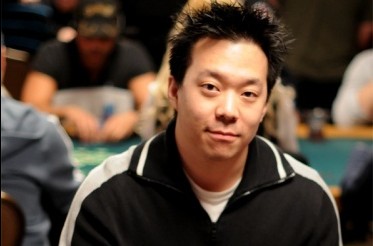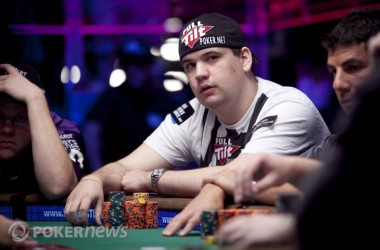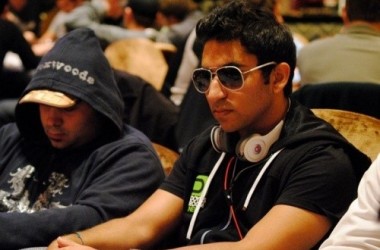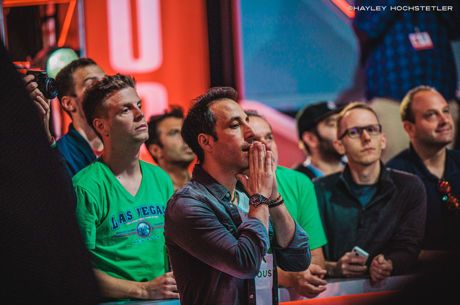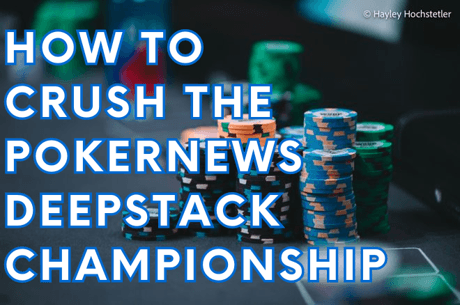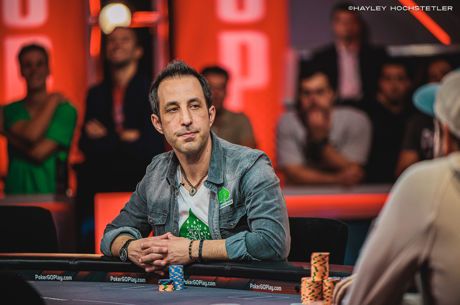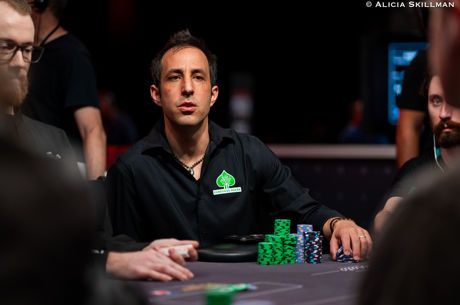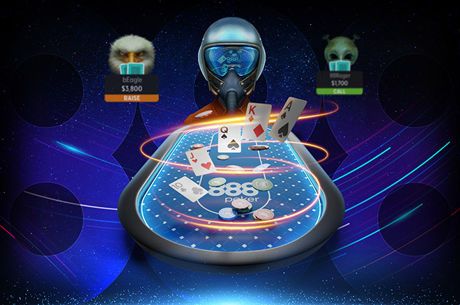Hand Analysis from the WSOP-C Hammond Regional Championship with David Paredes

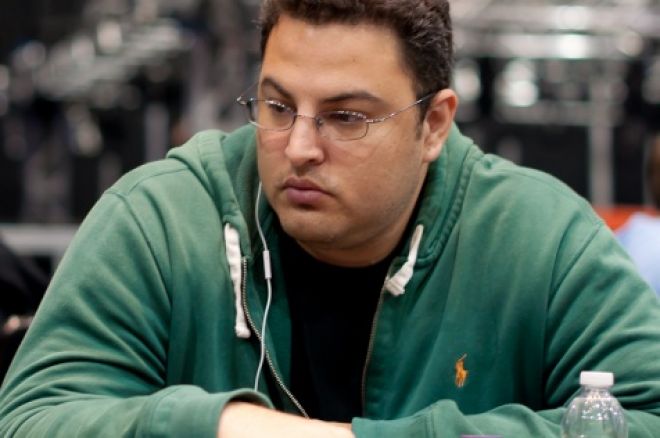
David Paredes' name and face may not be recognized often by the general poker public, but he’s quickly becoming a familiar face on the tournament circuit. At the North American Poker Tour Venetian Main Event in Las Vegas last February, he final-tabled and finished in fifth place for nearly $185,000. This year, he’s also cashed in the European Poker Tour Grand Final in Monte Carlo and the World Poker Tour Bellagio Cup VI. Paredes is also making a run in the $10,000 World Series of Poker Circuit Regional Championship in Hammond, Indiana. He talked to PokerNews about a big hand he played early on Day 2 against Jason Mercier.
Concepts
- Plan your bet sizing
- Be aware of your table image
- Check-raising with small pairs as a semi-bluff on some flops can be effective
Can you give a description of your table and your table image leading up to this hand?
No one knows who I am, and they don’t know how I play. I like that. But I see how they play on TV, at the least the poker celebrities. I liked my table because I had Vanessa Selbst to my right. She’s really aggressive and a really good player. I actually know her game pretty well, and she knows mine, too, because we’ve played together before. Jason Mercier was to my left, which I didn’t really like because he plays a lot of hands, and he plays very small-ball poker. He raises tiny and three-bets super small, too. Other than that, I didn’t really recognize anyone else.
Preflop Action: David Paredes raised to 2,400 in early position with 3♥3♣. Two to his left, Jason Mercier reraised to 6,700. When action folded back over to Paredes, he made the call.
I know he has a wide range of hands, so I’m not just playing to set mine. My plan is to check-raise on a few different flops, and then go from there.
Flop Action: The flop comes 6♣3♦2♠. Paredes checked and Mercier bet 7,300. Paredes check-raised to 17,500. Mercier called.
Obviously it’s the perfect flop for me, but I would have check-raised a similar board even if I didn’t hit a set because he has overcards a lot. I think I would be able to represent a pocket pair of tens since I raised in early position. I’d want him to fold any kind of junky hand he was in with that might have equity against my hand.
What’s his range when he calls your check-raise?
I put his range on either a gutter with an over like ace-five, ace-four or pocket pairs or maybe a big ace. I didn’t think he’d float with just like queen-jack or something, although, this is a board that I should get played back with a lot. That’s the other reason I check-raised that instead of just calling.
So you’re check-raising on a six-five-two board as a semi-bluff and to protect your equity, and then you’re check-raising for value when you do hit a set?
Right, so when I’m check-raising when I miss, I’m doing it on flops where I think he can’t really call. I might check-raise on a jack-ten-nine board just because I can have a lot of big cards in my range and he fold his junky hands, ace-highs, or smaller pairs that beat mine. So here, I flop a set, but I’m going to play it as though I have a check-raise semi-bluff hand which could also be the best hand.
Turn Action: The turn is the A♥. The board now reads 6♣3♦2♠A♥. Paredes bet 19,700. Mercier called.
This is a good card for me because if he does have a gutter with an overcard like ace-five or ace-four, he can call a turn bet. He could also have ace-king if he thought I was completely bluffing the flop.
Can you talk about the dynamic of the ace hitting the turn? This is kind of a magic card because of his floating range right?
Yeah, you’re right. It is a magic card because I’m not supposed to have an ace in my hand. He can represent an ace in his hand better than I can. It doesn’t really make sense for me to bet an ace. If I had pocket eights, I should be scared of the eights. When I bet here, it doesn’t really make sense. I feel like he’ll either call to float if he has a random hand, or if he actually has an ace. It’s a card that hits his range a lot better than mine.
If he knew that you’ve been a cash-game player for a long time, or had been familiar with your game, would you still make this bet knowing that he knows that you know this bet doesn’t make sense?
Generally the way people view me is just a random average person, so I definitely wouldn’t make that bet against Vanessa or someone who knows my game really well. But against Jason, I never really played with him before so I didn’t think he would give me much credit. I thought he might be able to put me on a spaz-out range more often than he would if he knew I wasn’t just a regular player.
Obviously you’re hoping to get stacks in by the river, so what went into your turn bet-size decision?
I wanted to bet an amount so that he’d have about a half-pot behind after calling. I wanted him to feel committed on the river. I also wanted to bet slightly bigger than what I check-raised to because a same-bet or smaller bet looks fishy.
River Action: The river is the J♣. The board now reads 6♣3♦2♠A♥J♣. Paredes bet 60,000, enough to cover Mercier’s stack of 34,000. Mercier called. Paredes shows 3♥3♣. Because the casino’s rules entail that all all-in hands are shown, the dealer tabled Mercier’s hand of Ax4x. Paredes wins the pot with a set.
This is kind of an irrelevant card. Of course I shoved for value. I think he could have folded because I don’t think I’m triple-barreling too often with complete air. It’d be really hard for me to have stone-air here. Once I saw his hand though, it did make sense to me.
He essentially has a bluff-catcher on the river. Why do you think he ended up calling?
I think he just called because he was a little frustrated. He was saying, “I wanted to hit my gutter or two-pair. There’s so much in the pot.” That’s what I wanted and why I sized it so that he had really good odds on the river. I mean, the odds don’t matter at that point because I either have it or I don’t, so I think he made a bad call on the river, but I like the way played the rest of the hand. He probably shouldn’t have three-bet preflop, but he’s such a successful player who preys on the weak. I do think he was trying to pick on me because I don’t think he’s three-betting me as an early-position raiser with ace-four off or ace-four suited if he knew I was good player. He thinks I’m an unknown. like my image in that no one knows me. I guess I shouldn’t be doing this interview. [Laughs].
Test out what you've learned from all of our strategy articles by signing up for an online poker account and getting in on the action. And as always, follow us on Twitter for up-to-the-minute news.

